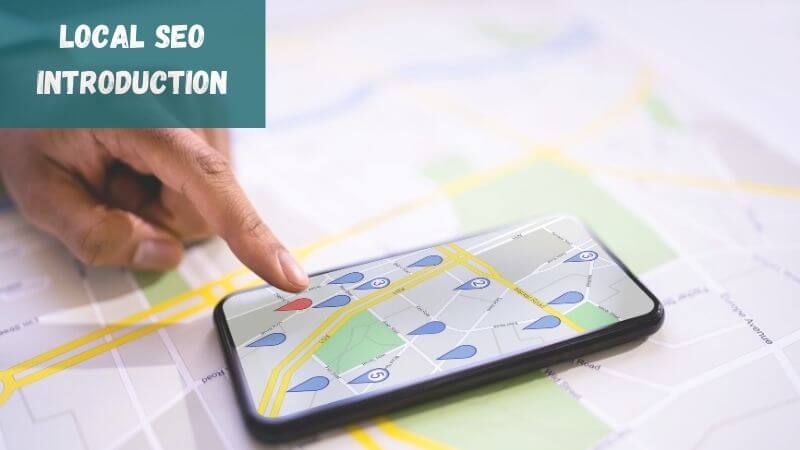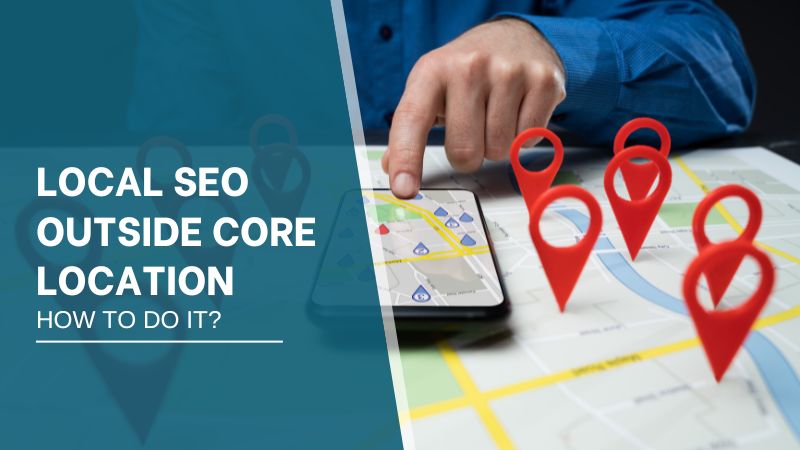Did you know that 46% of all Google searches are looking for local information? That’s nearly half of the world’s search activity directed toward businesses, products, and services nearby. This is where local SEO comes in. In this guide, I’m going to give you an overview about local SEO and try to show how local search works. Let’s get started..
What is local SEO?
Local SEO is the practice of optimizing your online presence to improve visibility in local search results. It’s specifically targeted at attracting potential customers in a specific geographic area, helping businesses rank for searches relevant to their location. This includes optimizing a Google Business Profile, local keyword usage, and getting listed in online directories, among other strategies.
For example, if you run a bakery in Chicago and someone searches “best bakery near me” or “bakery in Chicago,” local SEO helps ensure your bakery appears in the search results, especially in the Google Map Pack or local listings. This way, local customers can easily find and visit your business.
Local Search Keywords
Local search keywords are phrases that include a specific location to target customers searching for services or products in a particular area. Using these keywords helps businesses rank in local search results, improving visibility to nearby customers.
Location-Based Keywords:
These include the business’s city, neighborhood, or region in the search term. For example, “best pizza in Los Angeles” or “florist in downtown Chicago.”
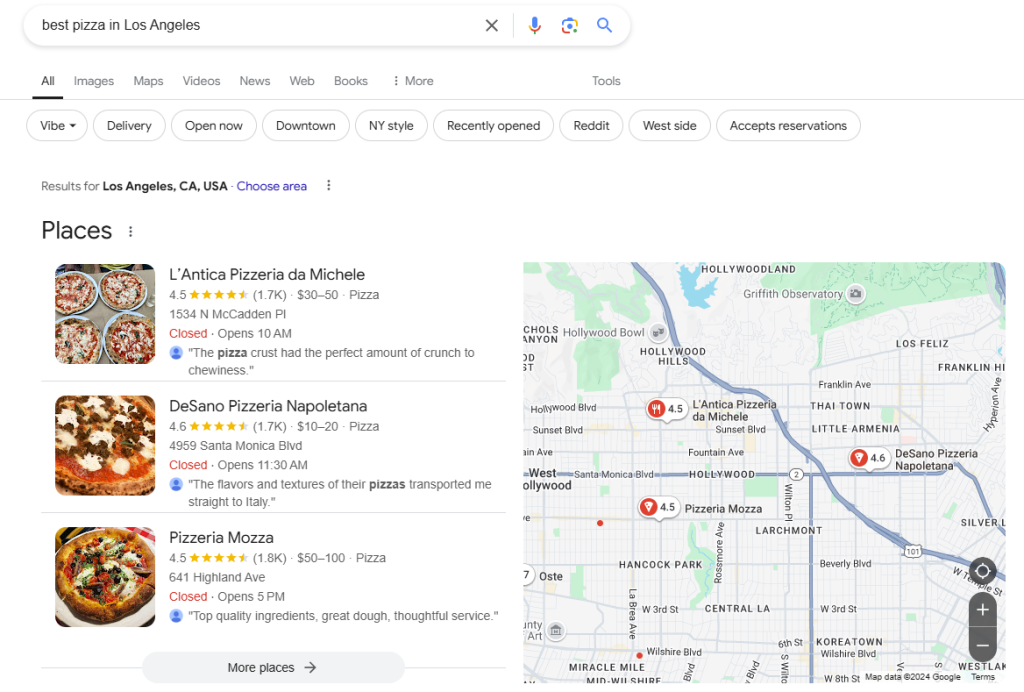
Service + Location Combinations:
Combining your service with a location is a common local keyword strategy. For example, “plumbing services in Miami” or “affordable car repair in Houston.”
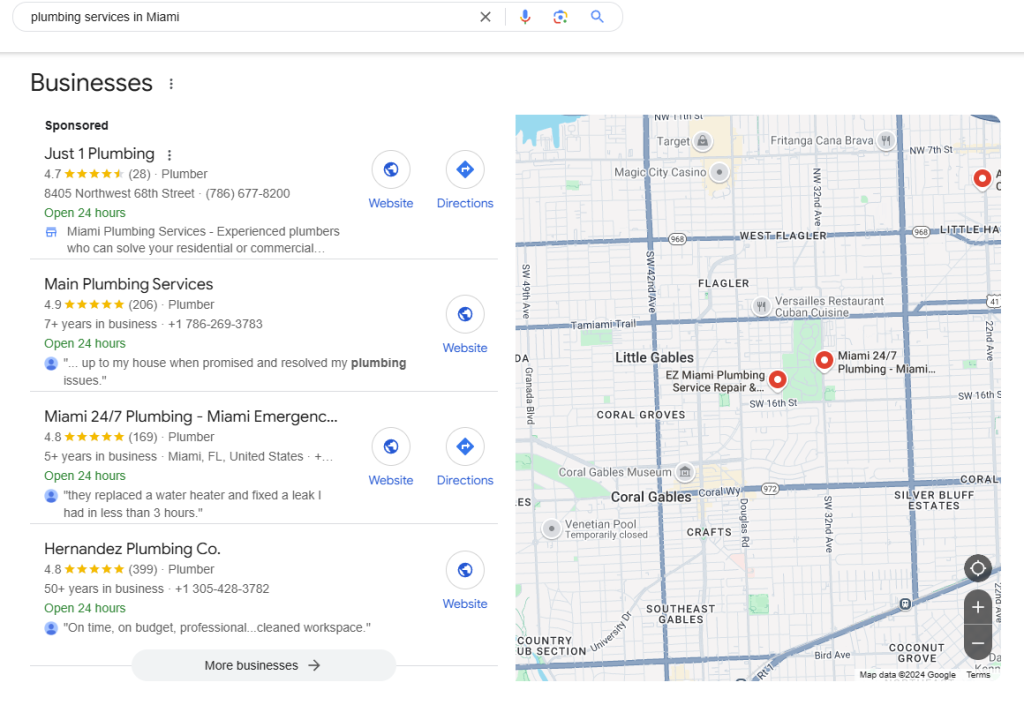
“Near Me” Keywords:
Many people use “near me” when searching for local services. Phrases like “gyms near me” or “coffee shops near me” are commonly searched, and optimizing for these can improve local visibility.
Local Events or Landmarks:
Targeting keywords related to local events or landmarks can drive traffic. For instance, “restaurants near Central Park” or “hotels near Boston Marathon.”
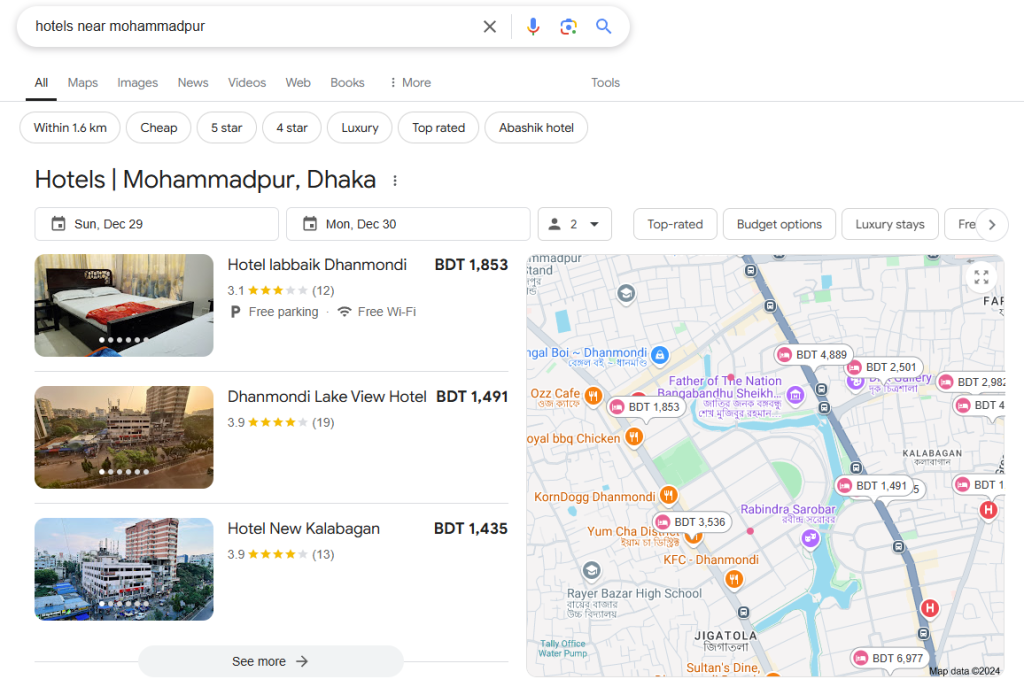
Geo-Specific Long-Tail Keywords:
These are more detailed, location-specific phrases like “family dentists in downtown Austin” or “vegan cafes in Williamsburg Brooklyn,” attracting more targeted local traffic.
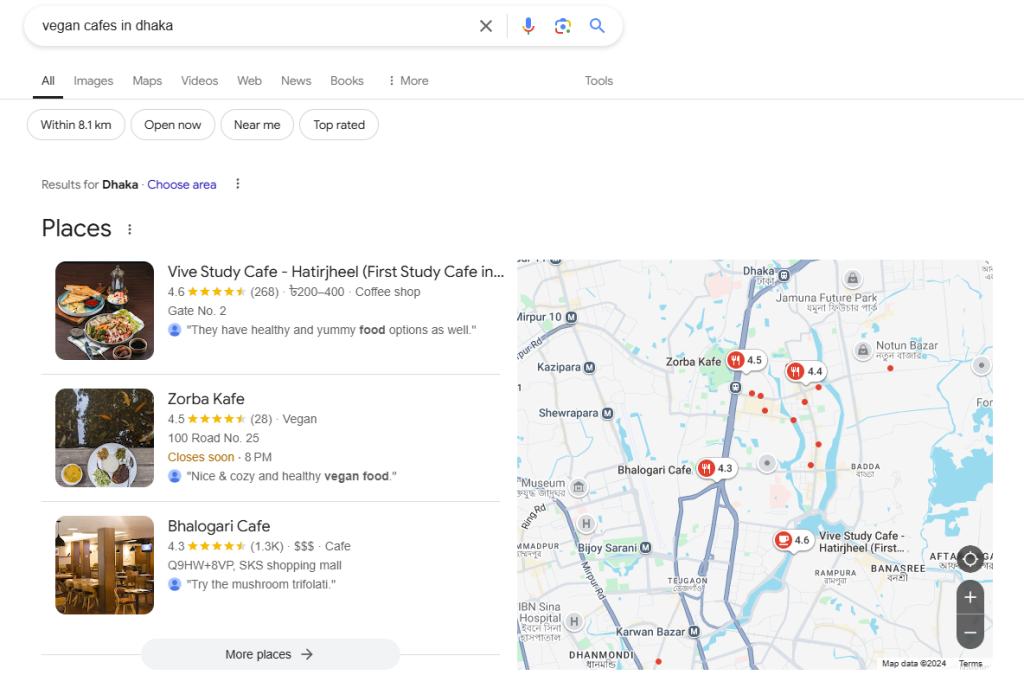
Why Is Local SEO Important?
Local SEO plays a vital role in helping businesses attract customers within their geographic area. It ensures your business shows up in local searches and reaches the right audience. Here are seven benefits of local SEO with examples:
Increased Local Visibility
Local SEO improves your business’s ranking in local search results, helping you reach more customers nearby.
Example:
A coffee shop in Brooklyn that optimizes for “coffee shop Brooklyn” and “best coffee near me” will show up in Google Maps and local listings when residents or tourists search for coffee in the area.
Higher Conversion Rates
People searching locally are often ready to take action, making local SEO an excellent way to increase conversions.
Example:
A dentist in Miami with optimized local SEO may appear in the top results for “emergency dentist Miami.” As a result, someone in need of immediate dental care is more likely to book an appointment with them, driving more high-converting traffic.
Enhanced Trust Through Online Reviews
Online reviews build trust with potential customers. By encouraging positive reviews, local SEO improves your business’s credibility.
Example:
A restaurant in Austin with a well-maintained Google Business Profile and strong reviews will appear trustworthy to someone searching for “top-rated restaurants in Austin.” The positive reviews boost their confidence in choosing that restaurant.
Cost-Effective Marketing
Local SEO provides a cost-efficient way to reach local customers compared to traditional forms of advertising.
Example:
A home renovation company in Denver might spend thousands on billboards or newspaper ads but can attract more local leads with optimized local search terms like “home renovation Denver” and local directory listings without the hefty costs of traditional marketing.
Improved Mobile Search Traffic
Local SEO ensures your website is mobile-friendly and optimized for mobile search, crucial as many local searches happen on mobile devices.
Example:
A car repair shop in San Francisco benefits from local SEO when people search on their phones for “car repair near me” while on the go. If the site is optimized for mobile, it’s easier for potential customers to call or get directions.
Competitive Advantage in Your Area
Local SEO gives you an edge over competitors who are not optimizing their presence, helping you capture more local market share.
Example:
A local bakery in Seattle using local SEO can rank higher than competing bakeries that aren’t optimizing for local keywords like “Seattle bakery” or “fresh bread near me.” This helps them get more customers than competitors who haven’t optimized their online presence.
Targeted Traffic and Leads
Local SEO brings in highly targeted traffic, ensuring that the visitors to your site are likely to be local and interested in your services.
Example:
A real estate agent in Dallas focusing on local keywords like “homes for sale in Dallas” or “Dallas real estate agent” will attract visitors who are actively looking to buy or sell homes in the area, increasing the likelihood of generating qualified leads.
Bottom line
Local SEO is essential for businesses aiming to attract nearby customers. By increasing local visibility, driving targeted traffic, and boosting credibility through reviews, it helps businesses thrive in their communities. Optimizing for local search is a cost-effective way to stay competitive and grow your customer base.

